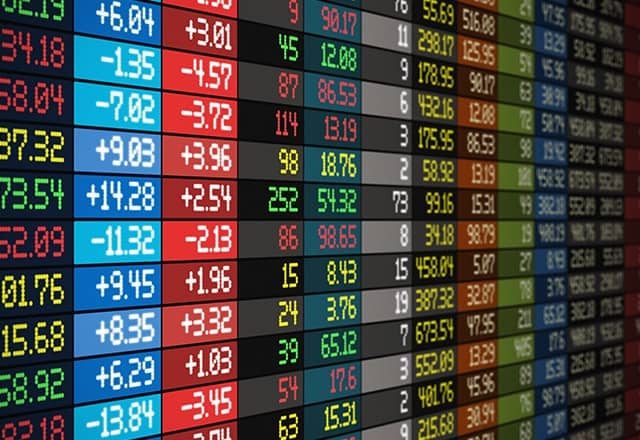by Casey Hall and Mimosa Spencer
The world’s biggest luxury brands looking to expand into their second-largest market, China, are all courting people like wealthy entrepreneur Diana Wang.
Based in Shanghai, Ms Wang is an investor who also owns a fashion brand bearing her name. She is an avid collector of fine jewelry and regularly shops at Cartier, Tiffany and Chopard, among others.
She is also what luxury companies call a “very important customer” (VIC), a segment of the market they are increasingly targeting as China’s post-pandemic economic slowdown dries up the purchasing power of the once very ambitious middle class, which for years generated most of the growth in their turnover.
Last month, Mr. Wang attended a gala dinner hosted by Tiffany, owned by the world’s number one luxury brand LVMH.
LVMH.PA, which also launched its new fine jewelry collection with private sales appointments for hand-picked clients.
“Luxury brands give you that event experience, that personal experience, and you feel privileged,” Wang told Reuters. “That’s a big part of what makes me want to buy the brand
The lack of a strong rebound in demand for luxury goods following China’s post-pandemic reopening has spooked investors, deepening fears about the sector’s prospects.
LVMH shares are down about 17% since July, while those of Richemont CFR.S are down 24%. This week, Burberry BRBY.L also reported weak double-digit growth due to a slowdown in luxury spending globally and in China.
To address this, brands are focusing on selling a smaller number of higher-value items, tapping into the 5% of luxury consumers who HSBC analysts estimate make up more than 35%. of their sales in China.
Offering perks like exclusive access and designer meetings to this handful of customers is a strategy that has proven successful for luxury brands globally, but has not been used as much by the past in China, where mass events aimed at increasing brand awareness and whetting new consumers’ appetite for luxury were more the norm.
Between 2019 and early 2022, sales of luxury goods in China doubled and some brands recorded year-on-year growth rates of 40-60%, with middle-class consumers accounting for “more than half” of this growth, according to Jacques Roizen, general director of consulting at Digital Luxury Group.
Today, the housing crisis and record youth unemployment have forced high-end retailers from Chanel to Cartier-owner Richemont to Gucci-owner Kering PRTP.PA compete for the discretionary spending of the fewest and most affluent customers who still want to treat themselves.
“It’s not just about advertising and communication,” said Jean-Marc Duplaix, Kering’s chief financial officer and deputy chief executive, referring to the company’s investments to appeal to buyers around the world. “It’s more broadly about how we engage with customers
INTIMATE AND EXCLUSIVE
Making Chinese VICs feel important is a central part of this engagement.
At the Shanghai gala, Tiffany ensured that a celebrity was seated at every table, Mr. Wang said. Versace, owned by Capri Holdings, which is being acquired for $8.5 billion by Tapestry TPR.N , also recently hosted an intimate dinner for around 40 people at the historic Bund with designer Donatella Versace.
Gucci, Chanel and Dior have also reserved more retail space in Shanghai, exclusively for their wealthiest clients.
“We pay a lot of attention to details and anchoring in local culture,” said Cyrille Vigneron, general director of Cartier. The brand will hold its annual Women’s Entrepreneurship Awards in Shenzhen in May.
Executives at rival brand LVMH are also very keen on this local dimension: Louis Vuitton recently opened a pop-up bookstore and café in Shanghai, with a billboard in the local dialect, and also launched a podcast in Mandarin .
NURTURE THE HABIT OF LUXURY
Even as they narrow their focus, luxury brands remain optimistic about the potential of China, which is expected to account for nearly 40% of global luxury sales by 2030, according to consultancy Bain.
Unlike foreign financial firms and companies in other sectors that are reducing their presence in China as geopolitical tensions rise and “derisking” takes precedence over potential market opportunities, many luxury companies say they are here to stay.
“We believe the medium- and long-term development potential remains strong,” said Eric du Halgouet, executive chairman of finance at Hermes, whose Birkin handbag is a coveted symbol of wealth.
Mario Ortelli, a luxury consultant, said several luxury companies are hedging their bets on China by also expanding their presence globally. This year, many events and openings took place in South Korea, Japan and Thailand, as well as China.
“But you always have to invest in your most important market, the one that drives growth,” Mr. Ortelli said. “The only way luxury companies can protect themselves is to make their brand as desirable as possible so that they are the last one that cost-cutting customers will stop buying
As China’s economic growth falters, even VICs like Wang say they are thinking more carefully about the value of the luxury goods they buy. But that’s not necessarily bad news for retailers.
“We will think twice or thrice before spending more money than usual,” Wang said. “I wouldn’t say we’ll stop buying, but it’s become a habit
